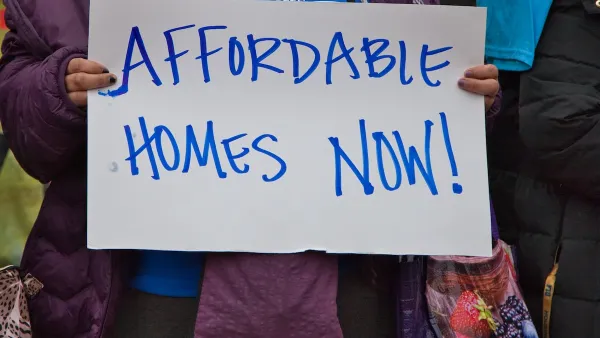James Howard Kunstler has been saying for some time now that when our "ponzi scheme" economy finally crumbles around us, people are going to be very angry, and looking for someone to blame.
James Howard Kunstler has been saying for some time now that
when our "ponzi scheme" economy finally crumbles around us, people are
going to be very angry, and looking for someone to blame.
words have been haunting me in recent weeks as we watch the avalanche
of bankruptcies, foreclosures,
layoffs and scandal roaring through the economy, and struggle to
comprehend the scale of the federal bailout money being feverishly
poured onto the flames. There is a sickening sense that what is
happening is beyond anyone's understanding or control. That people have
a lot to be angry about is beyond question.
However, this understandable anger is being directed by some right-wing political partisans at the most unlikely of
targets: community organizers, the Community Reinvestment Act (CRA),
and most of all, the Association of Community Organizations for Reform Now, or ACORN -- the latter of which, in addition to voter registration drives, has been a major force for community revitalization efforts and housing projects, notably in post-Katrina New Orleans.
And the McCain campaign has been actively encouraging this displaced blame. Worse, this effort to discredit community activism and revitalization is meshed with extreme anti-Obama rhetoric, with the result that a palpable mob-mentality is brewing at McCain-Palin rallies. Some observers are warning the McCain campaign that if the Senator
doesn't tone down his rhetoric and that of his running mate Gov. Sarah
Palin, there could easily be violence. In an op-ed for the Baltimore Sun, Frank Schaeffer accuses Senator McCain of
"...deliberately
feeding the most unhinged elements of our society the red meat of hate,
and therefore of potentially instigating violence. Your rallies are
beginning to look, sound, feel and smell like lynch mobs...John McCain
and Sarah Palin, you are playing with fire, and you know
it. You are unleashing the monster of American hatred and prejudice, to
the peril of all of us. You are doing this in wartime. You are doing
this as our economy collapses. You are doing this in a country with a
history of assassinations."
While all Americans should be
alarmed about what this sort of discourse is doing to the health of
their democracy, readers of this site should be specifically concerned
about how this ire is being turned against planning projects with which
many of us are professionally involved -- that is to say, housing and
revitalization projects in low-income communities.
Despite being quickly and widely debunked in the media (and on Interchange),
the counternarrative that the CRA and ACORN are to blame for the
economonic meltdown for "forcing" banks to give mortgages to
lower-income households to has taken hold on the right. More
seriously, ACORN's voter registration drives have been subject to
relentless criticism from the McCain campaign, highlighting alleged
voter registration irregularities. But defenders of ACORN have been swift to point out not
just the impossibility of fraudulent registration forms resulting in
actual phony votes, but that the real reason for the GOP's attacks on
ACORN is that it has managed to register 1.3 million poor people,
almost all of whom are likely to vote Democrat.
While to his credit, McCain has toned down his negative ads, the
toxicity of the backlash he has unleashed against community-based activism will surely
tarnish the remainder of the campaign, and could easily resonate
beyond; and the impacts this backlash could have on planning for low-income
communities could be serious and long-lasting. Planners working for or
alongside ACORN on housing and community revitalization projects may
well find themselves and their colleagues subject to abuse or harrassment. At the very least, they may have to defend their work publicly and in the media
in an effort to set the record straight and undo some of this damage. However, should the anti-ACORN agenda
carry into a McCain administration, bids to cease federal funding for ACORN will likely bear fruit, putting housing and social justice projects in the 110 cities in which ACORN is active in jeopardy.
Regardless
of the outcome of this election, housing for the poor has become a
controversial project about which powerful political and economic
forces have been violently unleashed. It is incumbent on planners to do
what we can to restore reasonableness to this debate, and to ensure
that the needs of lower-income communities are not cast aside in the
fallout from the economic meltdown -- and more ominously, in the search
for someone on which it can be blamed.

Analysis: Cybertruck Fatality Rate Far Exceeds That of Ford Pinto
The Tesla Cybertruck was recalled seven times last year.

National Parks Layoffs Will Cause Communities to Lose Billions
Thousands of essential park workers were laid off this week, just before the busy spring break season.

Retro-silient?: America’s First “Eco-burb,” The Woodlands Turns 50
A master-planned community north of Houston offers lessons on green infrastructure and resilient design, but falls short of its founder’s lofty affordability and walkability goals.

Test News Post 1
This is a summary

Analysis: Cybertruck Fatality Rate Far Exceeds That of Ford Pinto
The Tesla Cybertruck was recalled seven times last year.

Test News Headline 46
Test for the image on the front page.
Urban Design for Planners 1: Software Tools
This six-course series explores essential urban design concepts using open source software and equips planners with the tools they need to participate fully in the urban design process.
Planning for Universal Design
Learn the tools for implementing Universal Design in planning regulations.
EMC Planning Group, Inc.
Planetizen
Planetizen
Mpact (formerly Rail~Volution)
Great Falls Development Authority, Inc.
HUDs Office of Policy Development and Research
NYU Wagner Graduate School of Public Service





























